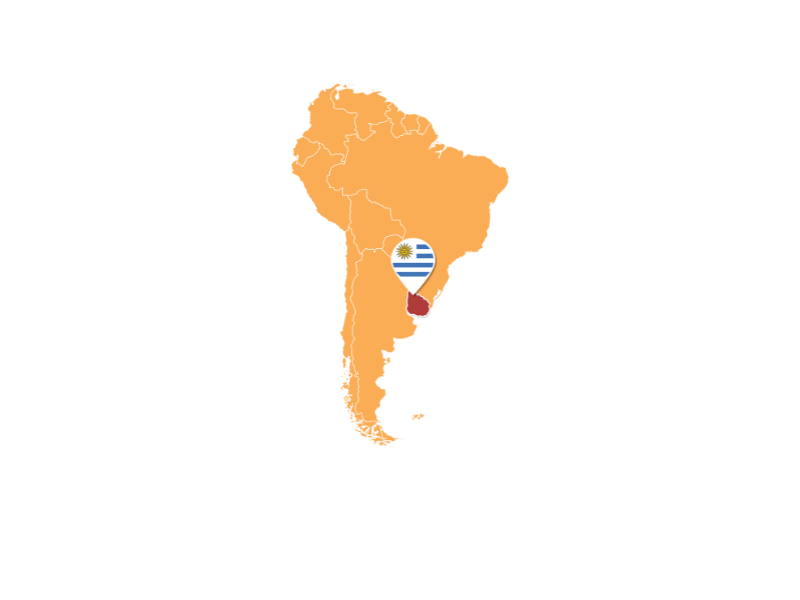Results will appear here.
There are no results for that search term.
by proverbz
SOUTH AMERICA
Nestled between Brazil and Argentina, Uruguay is a gem of South America, known for its rolling plains, expansive coastline along the Atlantic Ocean, and vibrant capital city, Montevideo. The country is also home to stunning landscapes such as the pristine beaches of Punta del Este and the historic streets of Colonia del Sacramento.
Uruguay’s primary language is Spanish, which reflects its colonial history under Spain. Over the centuries, Uruguayan Spanish has developed its unique flavor, enriched by indigenous influences and the cultural contributions of Italian, Portuguese, and African communities.
Unlike other Latin American countries where Castilian Spanish remained dominant, Uruguay (like Argentina) adapted its spoken Spanish into Rioplatense due to its strong urban culture, constant exchange with Argentina, and cultural pride in sounding distinct. Rioplatense is thus not just a dialect—it’s a marker of regional identity.
This linguistic melting pot reflects the proverbs used by Uruguayans, each phrase carrying the weight of cultural history and collective wisdom. Discover more about Uruguay on this history timeline.

Rioplatense Spanish is a regional dialect of Spanish spoken mainly in Uruguay and eastern Argentina, especially around the Río de la Plata basin. While it uses the same alphabet and grammar rules as standard Spanish (Castilian), it has some distinct differences in pronunciation, vocabulary, and intonation.
One major difference is the use of “voseo”: instead of using “tú” for “you,” Rioplatense speakers use “vos” (e.g., vos tenés instead of tú tienes). It also has a unique pronunciation for the “ll” and “y” sounds, often pronounced like the English “sh” or “zh” (lluvia sounds like “shuvia” or “zhubia”). Dive deeper into Rioplatense Spanish.

One of the amusing proverbs from Uruguay is “Más loco que una cabra con pollitos.”, which translates as: “Crazier than a goat with chicks”
This saying describes someone who is acting very erratically or bizarrely. The image of a goat trying to manage a brood of chicks is inherently funny and conveys the chaos and confusion vividly.
As we approach the conclusion of our journey through Uruguayan proverbs, we catch a glimpse of the essence of this dynamic nation. Its proverbs reflect the rich history and the spirit of its people. From the gauchos of the pampas to the vibrant streets of Montevideo, these sayings capture the essence of daily life and values in Uruguay.
As you explore Uruguay, let these expressions guide you through understanding its cultural depth and the warmth of its people. Embrace the wisdom of Uruguay, and carry its lessons with you on your journeys. ¡Salud y buena suerte!